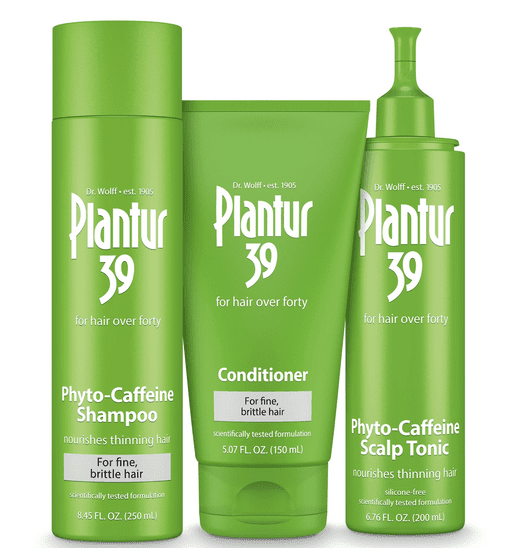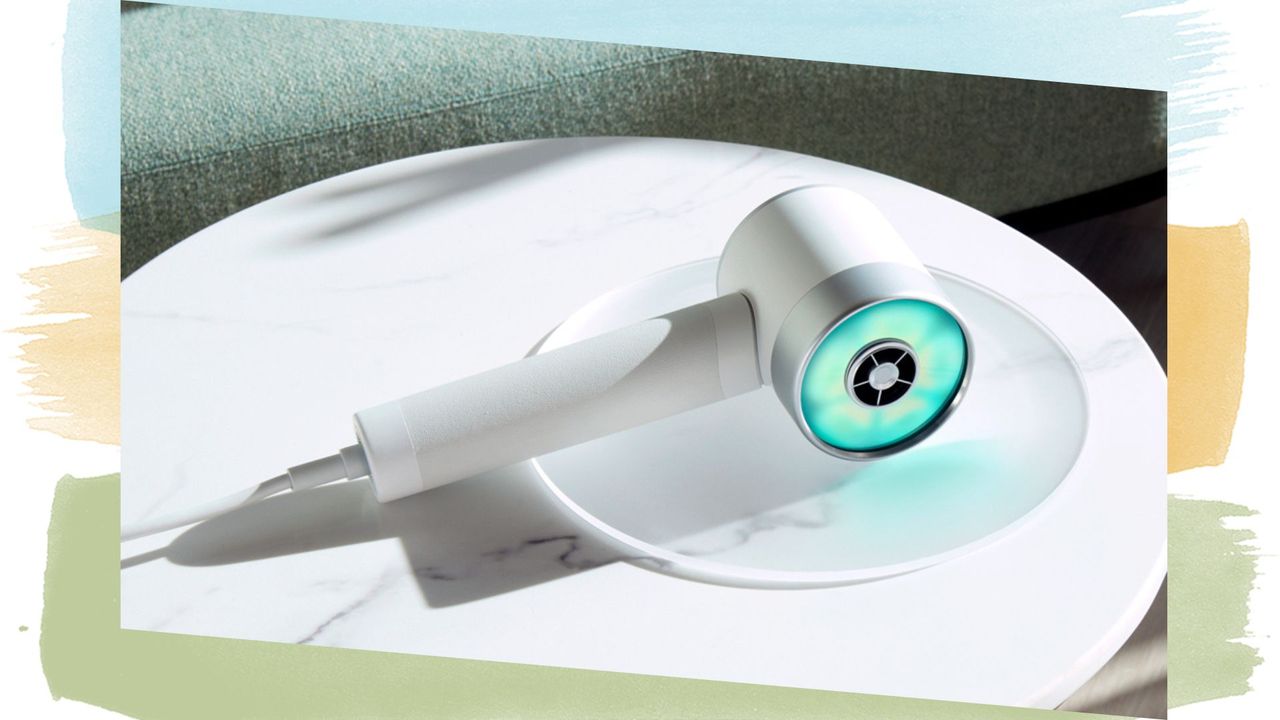Table Of Content

Siloing off menopause from other relevant fields of medicine means menopausal women and trans people alike can miss out on knowledge and treatments that already exist. “Bleaching, perming, and extreme hold hair sprays contain harsh chemicals that can cause hair loss by damaging the hair follicles and strands. Certain chemicals found in shampoos, conditioners, hair dyes, and styling products can strip the hair of its natural oils, leading to dryness, breakage, and hair loss. That’s because factors like genetics, your nutrition, stress and anxiety, and changes in your hormones, metabolism, or medications can all contribute to thinning hair. And the cause of your hair loss can help you determine the right ingredients for you—and, with that, the best hair growth serum.
Avoid harsh products
Nutrafol's hair growth formulas are designed to meet your bio-specific needs and help you target the root causes of hair loss. Supplements should never replace a healthy, balanced diet, but it can be difficult to get enough protein and micronutrients from diet alone. Try Density Amino Acid Protein Booster and Healthy Hair Complex[PS1] by Phillip Kingsley. ‘Absolute Collagen shampoo and conditioner is scientifically proven to thicken individual strands of hair,’ suggests Douglas. Eating a balanced, low-fat diet is your best defense against hair loss. Make sure you include an adequate amount of whole grains, fruits, and vegetables in every meal.
Menopause and hair loss: everything you need to know - Women's Health UK
Menopause and hair loss: everything you need to know.
Posted: Wed, 31 Jan 2024 08:00:00 GMT [source]
What are treatments for female hair loss?
It can also relieve stress-induced hormone imbalances that may contribute to menopausal hair loss. Menopause-related hair loss can occur in other parts of the body as well. Many females notice hair growth slows or stops on their legs, arms, and armpits.
action: 'healthbeat'
According to our testers, these products made their hair feel cleaner, softer and fuller. The shampoo had a pleasing creamy, rich lather, while the conditioner left hair feeling silky and nourished. After application, hair was easy to style and appeared thicker.
Can Menopause Hair Loss Be Prevented?
You may be experiencing female pattern hair loss, a problem that’s much more common than you might think. When estrogen levels decline with menopause, it not only accelerates skin aging but affects the hair follicles and can contribute to hair loss and thinning. In addition, when the body is actively converting estrogen to testosterone during menopause, this reducing the follicle's exposure to androgens. The average UK age for going through menopause is 51 but perimenopause symptoms can start much earlier – which is where you might notice hair loss and shedding. While menopausal hair loss is common, it's not forever – and there are things you can do to help boost your strands again. While menopause symptoms are the primary factor for hair loss in women, there are a number of other factors that can predispose one to have thinning hair.
Menopause is a regular, natural process that all women experience at one point or another in their lifetimes. This is a specific period of time where the female body undergoes numerous changes that are directly attributed to changing hormonal levels. Some of the common physical changes that happen during this time are hot flashes and mood swings. The more menopause and gender care are considered together in medical settings, the better the outcomes will be for everyone involved. Yet menopause studies rarely consider trans men and nonbinary people, along with younger women and girls who experience menopause due to cancer treatment, surgery, or health conditions that affect ovarian function. Although these patient populations represent a small proportion of the patients going through menopause, their experiences can help researchers understand the effects of low estrogen across a range of bodies.

Causes of Hair Loss in Men: The Top Culprits
The proper supplements and hair care can help alleviate those unwanted symptoms. Hair loss is normal, but a doctor’s visit should be scheduled if there is a potential discrepancy in regards to the cause. The origin of hair loss can be potentially come from medication side effects. Speak with your doctor to see whether or not that is the cause.
“The condition is thought to be hereditary and while it doesn't usually cause baldness like in men, it can still affect self-esteem and confidence. If you're concerned about female pattern baldness, talk to your doctor who can advise you on possible treatment options. While many products do provide applicator nozzles that reach through the hair, some droppers aren’t as precise. Your hair grows from your scalp like trees from the forest floor. Your scalp has an epidermal layer, a dermal layer and a hypodermal layer, which is the laboratory of the hair follicle and must be kept healthy to encourage healthy hair growth. When you are older, this area needs more help to function effectively.
Get the best in health and wellness
Androgens can cause the hair follicles on the head to shrink, resulting in a type of hair loss known as androgenic alopecia. “Female pattern hair loss, also known as androgenetic alopecia, is common and can occur at any age, but it's thought that 40% of women aged 70 or over experience the condition in some form. Women with androgenetic alopecia will usually experience gradual thinning of the hair, typically on the top of the scalp and some women notice their hairline receding. Researchers, led by Dr. Sukanya Chaikittisilpa of Chulalongkorn University in Bangkok, recruited 178 women who were already being seen at a menopause clinic.
For example, if you tend to shed a considerable amount of hair during brushing, styling or washing, then hair loss during menopause or perimenopause may not raise any immediate red flags. The effect of menopause on hair health can vary, some women may experience hair that, once strong and full, now seems weak, brittle and thin compared to other women. Research has found those who experience hair loss during menopause may not be getting all the nutrients they need. Eating a well-balanced diet that is high in nutrients can aid in the reduction of hair loss. The hormonal changes from menopause can cause your stress levels to rise.
They can offer guidance or potential alternatives if the medication's side effects affect your hair. While hair thinning might not always lead to visible baldness, it can still significantly impact the overall look and feel of the hair. Both hair loss and hair thinning can be influenced by various factors, including genetics, hormonal changes, medical conditions, and lifestyle factors. Hair thinning can occur in certain areas on the scalp, such as the crown or along the part line, leading to noticeable patches or generalized thinning across the entire head.
In this article we will discuss the causes, symptoms, prevention strategies, and tips to grow thicker, fuller hair. Load up on H2O all day long and pass on juices, sodas, and other flavored drinks that contain more sugar than your body needs. You’ll feel stronger and happier once you incorporate exercise into your daily routine. Sign up to our newsletter and get exclusive hair care tips and tricks from the experts at All Things Hair. Hello Klean has a range of haircare formulated for hard water areas. If you’re already taking a pre- or probiotic, then you’ll be aware of the positive impact of balancing your biome.
Yup, your hair is among the many things your hormones can alter during both the perimenopausal and post-menopausal years. The hormones involved—mainly estrogen and progesterone—affect your hair’s growth cycles, your scalp and follicle health, and the natural oils that keep hair smooth and lustrous. Because of that, you may experience thinning, lack of density, texture changes, and dryness as estrogen wanes. “During perimenopause, it isn’t that your estrogen is gone; it’s fluctuating,” says Debra Lin, PhD, hair science expert and chief scientific officer at Better Not Younger, a haircare brand.

No comments:
Post a Comment